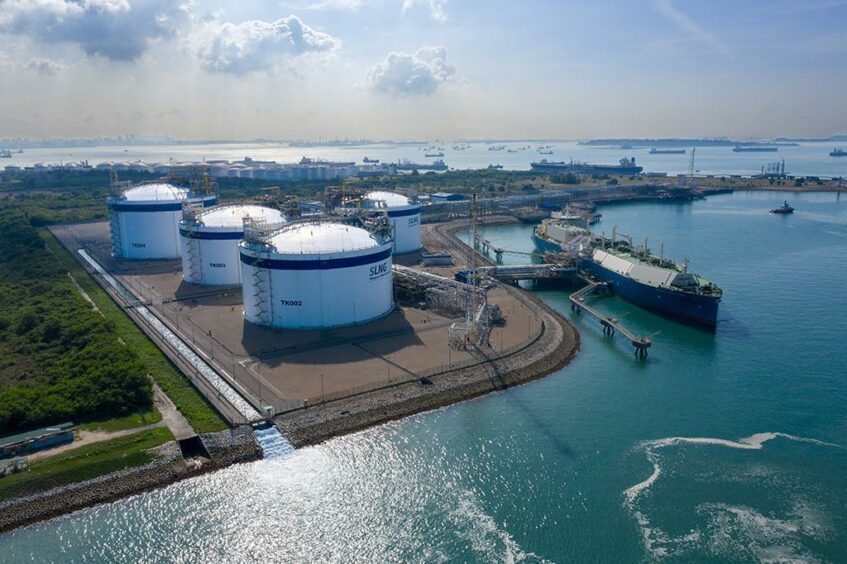
Asia’s top liquefied natural gas (LNG) importers are accelerating efforts to secure fuel for winter on fears that Russia will curb supply and further tighten the global market. This could pose a further setback for Europe as it tries to manage its energy crisis.
South Korea purchased more than a dozen cargoes for delivery this winter, while major Japanese utilities are looking for supply from September, according to traders. Taiwan’s CPC Corp., which had been quiet for months, returned to the spot market seeking to pick up supply for this fall, the traders said.
The surge in activity coincides with the end of scheduled maintenance for Russia’s biggest natural gas pipeline to Europe. The key link resumed early Thursday, but any disruption or reduction of supply will force Europe to procure more LNG — putting them in direct competition with Asia, home to the world’s top importers of the super-chilled fuel.
Gas buyers in Asia want to lock in winter shipments before a potential global price spike or Russia-induced shortage. Spot prices for natural gas in Europe and Asia are already trading at an all-time high for this time of year.
Asia’s LNG price discount to Europe shrank in the last week, indicating that utilities in the Pacific are paying more to try to attract more supply. Europe has been outbidding Asian rivals for spot LNG supply so far this year due to an acute need to refill inventories.
To be sure, China — the world’s top LNG importer last year — has been noticeably absent from the spot market due to virus restrictions curbing demand for the fuel. If China’s economic activity picks up, that could quickly change and result in fewer LNG cargoes for Europe, Samantha Dart, Goldman Sachs Group Inc.’s head of natural gas research, told Bloomberg.
China LNG Demand Revival Could Setback Europe
Europe may face a further setback in efforts to manage its energy crisis if there’s a revival in China’s demand for liquefied natural gas, according to Goldman Sachs Group Inc.
Weaker LNG consumption as a result of coronavirus curbs has seen the nation add to inventories, and enabled importers to capitalise on high prices by reselling cargoes — boosting the availability of shipments for European buyers, Goldman’s head of natural gas research Samantha Dart told Bloomberg Television in an interview.
“They have been reselling their LNG cargoes out in the spot market. The more they resell, the more is available for Europe,” Dart said. “That brings up an important risk — the moment Chinese economic activity picks up, we may see this quickly change and as a result fewer cargoes for Europe.”
China’s total domestic demand for natural gas was down in April and May from a year earlier, and about flat in June, she said. The country’s LNG imports could fall 14% this year on factors including higher prices and a subdued economy, according to Wood Mackenzie.
The global energy squeeze means countries will need a more flexible short-term approach on the move to low-emissions sources, because growth in renewables isn’t yet sufficient to offset any gap in natural gas supply, Dart said.
“The energy transition is not going to stop, but it is going to have to be more tolerant of hydrocarbons for a little bit longer when we don’t have enough natural gas,” Dart said. “There is no other way but to bring in coal, bring in oil, bring in other fuels.”
Recommended for you
